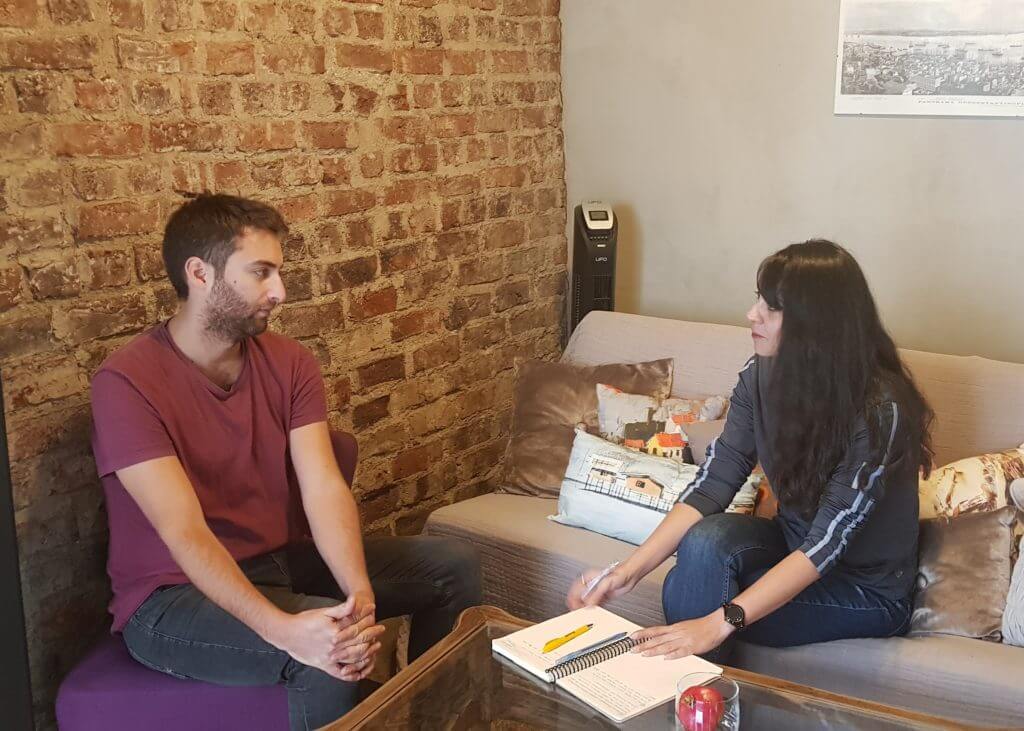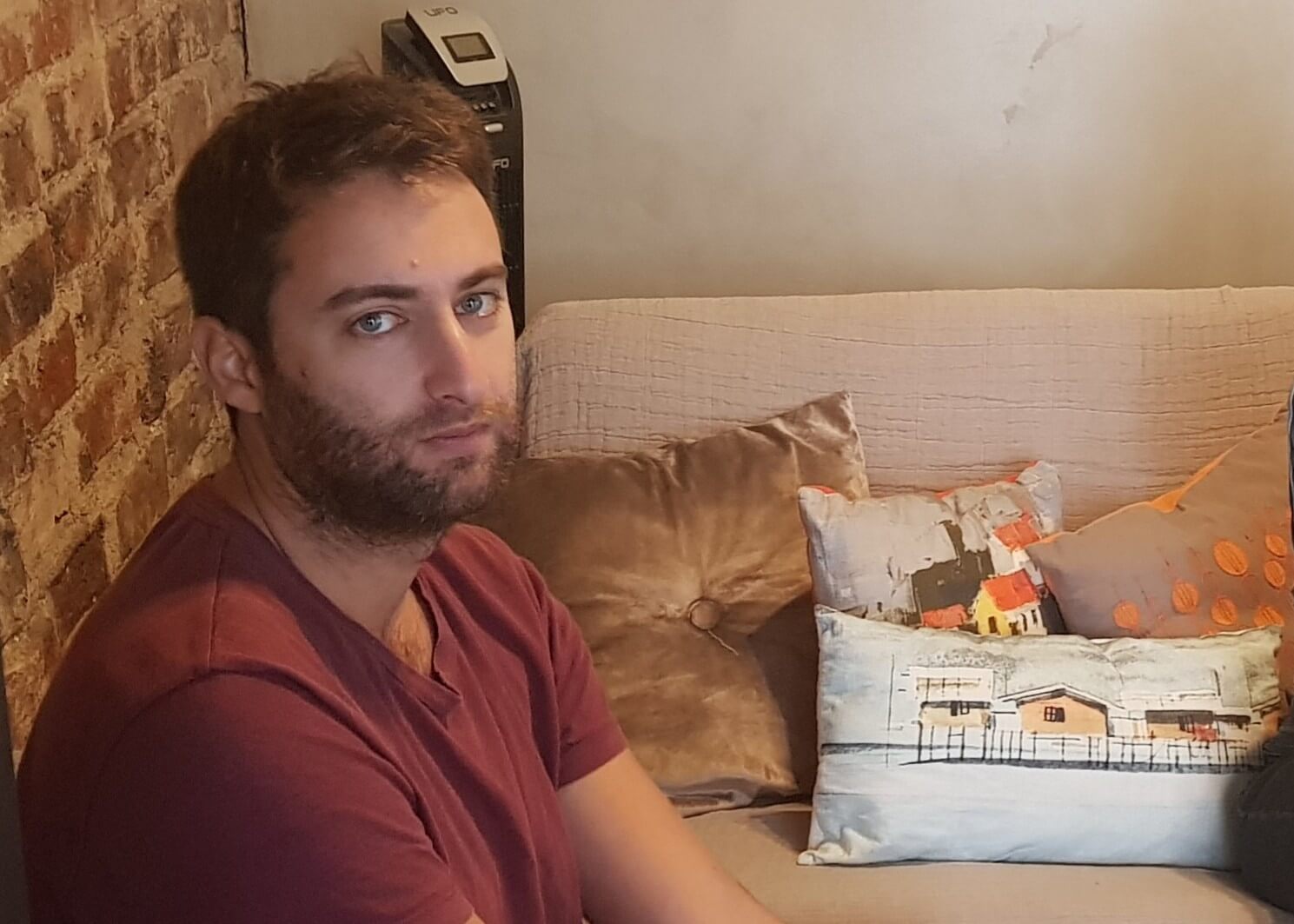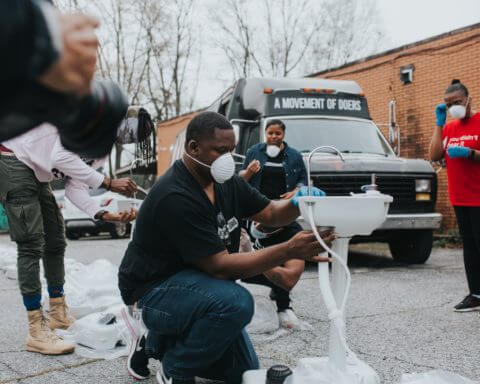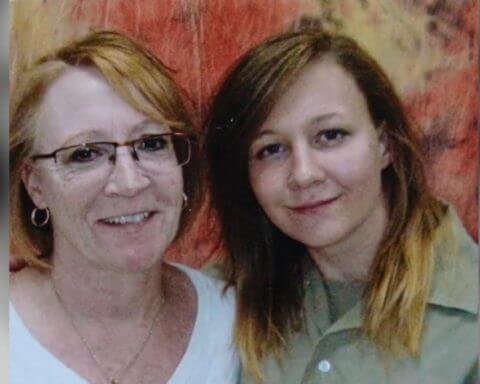Daphne Caruana Galizia, a Maltese journalist, was blown up by a bomb placed in her car right outside her house in October 2017. She was in the public spotlight for disclosing the involvement of senior Maltese politicians in the Panama Papers corruption leak. After three years of stalling in the investigation, her unsolved murder eventually led to the resignation of Malta’s Prime Minister Joseph Muscat in December 2019, shortly after the arrest of a government-linked businessman.
- Galizia’s son, Matthew Caruana Galizia, told NOVO Gazette in an interview that a Maltese government official had even claimed he was behind the murder of her own mother “aiming to help topple the government”, while the police did not go after the real perpetrators.
- Daphne’s face was once on the now-ruling Labor Party’s election campaign billboards. “That was the moment when everything changed,” Matthew said, explaining how it was the beginning of the end for her mother.
- In the months leading up to her murder, a government official started a blog dedicated to harass the journalist, where he encouraged people to follow her around and post her private photos, says Matthew.
- Malta is a member of the European Union (EU). However, according to Matthew Caruana Galizia, “it has more in common with North Africa than it does with the rest of Europe.”
- The late journalist’s house was set ablaze in 2006 while she and her family were sleeping inside. Her dogs were killed three times.
In an interview with NOVO Gazette, Matthew Caruana Galizia said the Maltese police didn’t do anything for two years, even though they had adequate information on the middle man who paid the three arrested hitmen.
“For me though, the worst part about this is not how long the police have taken to move against the middle man, but how long they have taken to move against the people that my mother investigated,” Galizia said.
“Because what my mother was working on isn’t a mystery. And the people who wanted her dead aren’t a mystery, either. So the police could have used the evidence that my mother put into the public domain to start investigations against the people she was reporting on. And this would have obviously squeezed them, but they didn’t do that.”
A Council of Europe rapporteur, Pieter Omtzigt, had confirmed Matthew’s statement when he spoke to the Guardian last October. He said that the Malta police were unwilling to accept evidence during the prosecution, even that “the authorities may have turned down evidence that could lead to those who commissioned the killing.”
When asked about the role of the Maltese government on his mother’s death, Matthew said “I think at the very least, they are responsible for allowing it to happen and that makes them responsible for the murder.”
“There are certainly people within the government who are actively involved. I’m sure of that. It’s impossible for something like this to happen without the involvement of someone very senior in government. I’m pretty certain that Keith Shembri, the prime minister’s chief of staff, was involved. I think at the very least he knew about it.”
Schembri stepped down as prime minister’s chief of staff in late 2019, before being briefly arrested as part of the Galizia murder investigation.
Matthew told us he did not find it sincere when the former prime minister vowed to solve his mother’s murder and promised a reward of €1 million for substantial information that would serve this purpose.
“No, it wasn’t sincere. I don’t think so. Because Muscat knows that… Let me put it this way. If I suspect five people of being involved, Muscat has reduced that number down to two or three. Because he obviously has more information than we do. And one of those two or three people is his own chief of staff who worked in the same office as he did. If he really wanted to solve it, he would have forced his chief of staff to resign a long time ago, and also pushed forward a prosecution against his chief of staff for the crimes of corruption that he had already committed long before my mother was murdered.”
Until the recent resignations, Malta was the only government with officials who hadn’t quit among all the countries implicated in the Panama Papers.
Matthew says her mother’s investigative journalism revealed some solid evidence about Schembri having unlawful deals with a group of Russians, who allegedly bought Maltese passports from him in order to take advantage of EU citizenship.

‘They accused me of killing my mother’
In the early stages of the murder probe, supporters of the Maltese government accused Matthew of being behind the murder of his mother for the sake of helping overthrow the government. When asked about it, Matthew replied with:
“Yes, even one of the prime minister’s spokespeople made this allegation himself. He published a statement on Facebook, saying that I should be investigated for my role in my mother’s murder. And he never retracted that statement. He said it was suspicious that I left her car parked outside. He asked ‘Why did he do this? Is it because he knew people were coming to put a bomb in the car?’ Because at the time, my mother and I were sharing a car.”
In November, the Maltese government made a revision to the public inquiry board that is investigating the killing of Daphne Caruana Galizia. When we asked her son about his reaction to this development, he said:
“We welcome it, but I wouldn’t say we are ‘happy.’ I think it’s a victory, but it was a very hard one. We spent two years campaigning for it. Because we started right after the murder. It was extremely difficult. We had to negotiate with people from the government, whom we know are responsible for my mother’s murder. Secondly, the work of the inquiry now has to start without interference. And I’m a bit worried. Because so much time has passed and a lot of evidence was allowed to disappear.”
The original selection of board members announced in September by the government was “just insulting,” according to Matthew, who said one of the original members was a lawyer defending an individual his mother investigated.
‘That was the moment when everything changed’
Going back to the period leading up to the murder of Daphne Caruana Galizia, Matthew told us how his mother was harassed in an unusual way on her last days by Neville Gafa, an official who worked in the Office of Malta’s Prime Minister:
“He would follow my mother around and take photos of her and post them on Facebook and incite people to do the same. Just to make her life impossible and to eventually stop her from doing her work, but also to incite violence against her. There was a blog dedicated to harass my mother with 380 pictures. Encouraging people to comment under those pictures, saying she’s ugly, miserable, etc.”
When we go further back, Matthew remembers how the country’s — now-ruling — Labor Party put her mother’s face on billboards for its 2013 election campaign.
“That was actually the moment when everything changed,” he said. “Because even though my mother was very popular and her name was very well-known, many people who voted for Joseph Muscat didn’t actually read her articles. And they were sort of incited to hate her, but they didn’t read her articles and they didn’t know what she looked like. Because they had never seen her photo. But when they put her face on a billboard, that’s when everything changed. Because then people started recognizing her and they started harassing her. They wrote something like ‘Vote to get rid of these people.’”
Her dogs were killed and her house was set on fire
The targeting and harassment of Daphne Caruana Galizia as a journalist indeed dates back to decades ago, when Matthew was a child. He remembers having their family dog killed in three different instances.
One of their dogs had its throat slit, while another was shot, and the third one was probably poisoned, over the course of a number of years while he was growing up.
“Just before our mother was murdered, our dog got very sick. I always suspected that it was poisoning. Because nobody could explain it.”
There was even an attempt in 2006 to burn down the veteran journalist’s house while she was sleeping inside, an incident Matthew recalls vividly:
“I was at home with my mom, my dad and my middle brother. At the time, I was studying for my university exams. So I was staying up late. And I hadn’t gone out. I think it was a Friday or Saturday night. I was the last person to go to sleep. So they apparently waited for me to turn off the lights in my bedroom. Then they attacked. By that point, I was already asleep. Everyone was asleep, in fact. But my youngest brother, Paul, was out that night. He came back home just after the fire started. And he saw it going to the back of the house, woke everyone up. My dad put out the fire.
“There were car tires stacked up in front of the door to make the fire more intense. They put bottles with petrol inside the tires and then they set the whole thing on fire. So the fire was very intense because of all the fuel. And we always thought the people who did it were from the army. Because they needed to be very strong to lift all those tires up the hill, where we live. And also at the time, my mother was writing about a group of neo-Nazis. And many of the members of that group were from the army.”
Even though Daphne Caruana Galizia pressed charges for the attack, nobody was ever charged for it, Matthew explained.
She was arrested ‘under a law not enforced on anyone else’
Her journalistic work sometimes led to harm to other people, too. In the 1990s, Matthew said, his mother was working on an investigation into a cocaine trafficker, whose father was the army brigadier, the head of the army.
“This cocaine trafficker was using information from his father and using protection through his father to get cocaine shipments by boats into Malta. When my mother broke the story, his father was fired. And in an act of vendetta, he sent someone to set the front door of our house on fire. My mother’s source for the story was stabbed in the back around the same time.”
There was also a time when Daphne Caruana Galizia was arrested by the Maltese police under a law that was not enforced on anyone else, according to Matthew.
Malta has a ban on publishing political content the day before a general election, but politicians were still publishing ads online, on Facebook and in newspapers before the 2013 election, so his mother kept publishing on her blog, he explained.
“So she said ‘If they can pay to publish adverts, why can’t I publish my own opinion on my website?’ And she was arrested. But this law had never been enforced, ever,” he said.
Matthew told us that his mother’s case was not the only car bomb murder in Malta’s recent history. There were six other car bombings within the year leading up to her mother’s murder and they are all unsolved, he said.
Dozens of libel suits
For Daphne Caruana Galizia, who called herself a “national scapegoat” in an interview, another means of harassment was the libel suits filed against her. There were a total of 47 of them.
“Most of the libel suits were filed in the last two years ahead of her murder. So there was a really clear escalation of the ongoing harassment against her. It was as though they were all acting together. All the people she was reporting on. Most of them were filed by politicians, including the [former] prime minister,” Matthew explained.
Daphne Caruana Galizia wrote extensively about ex-Prime Minister Muscat’s wife having offshore bank accounts.
“They said everything was false, even though there was clear evidence. And their supporters would believe their statements that the evidence was false, without ever looking at it.”
The Daphne Project helped solve part of the case
Asked about the Daphne Project, an initiative started by other journalists to complete her unfinished work, and whether there have been any advances on the cases she had been working on, he said:
“Yes, there have. One of the most important ones was that the journalists working on the project discovered that the owner of one of the shell companies my mother was investigating was the owner or a shareholder of the power station — ElectroGas — that she was also investigating. A businessman called Yorgen Fenech [who was later charged with being an accomplice in Galizia’s murder].
“She had originally started investigating this company because it was listed in the Panama Papers as one of the companies that were supposed to pass on payments to the prime minister’s chief of staff and to the energy minister. And journalists of the Daphne Project found out that the person who was supposed to be passing on these payments was Fenech. He is a shareholder in a power station that was created in a corrupt deal with Azerbaijan and facilitated by the government.”
Malta’s tourism minister Konrad Mizzi, who formerly served as energy minister, also resigned at the same time as Schembri, following the arrest of Fenech as part of the Galizia murder.
‘Many of them are probably happy she was murdered’
The harassment did not stop even after her death. A makeshift memorial made in her honor gets attacked often and even people offering tributes to the memorial are provoked by government supporters.
“They are targeting our ability to mourn. My family and people who love my mother and followed her column need the ability to mourn her. If that is denied, it really causes a lot of agony. Obviously the government knows this. They do it on purpose,” Matthew said about her mother’s critics.
“They are old people who have been incited to hate my mother. If you ask them whether they have read anything my mother wrote, the answer would be no. All they think they know about my mother comes from the party political propaganda which they consume. So in a way, I see these people as victims of that propaganda. It is really a lesson in how people can be incited to want a journalist dead. Even in the European Union. Because many of them will even say on record that they are happy she was murdered. They’ll say that.”
‘There are whole families that are all employed by the government’
Matthew explains why he thinks there is so much support in Malta for the Labor Party government and former Prime Minister Muscat:
“The Labor Party is a populist party. Because Joseph Muscat claims to be pro-gay rights, a liberal. But in reality, he is not. He is an extremely cynical and immoral person who uses these ideas just to sort of pinkwash his government. And at the same time, like any populist leader, he thrives in a society which has very low levels of education and has a very poor democratic culture. Even though Malta is part of the EU, it has more in common with North Africa than it does with the rest of Europe.
“Populists thrive in this kind of environment. Because they rely on ignorance in order to build their support base. And Joseph Muscat has been able to do this. He also uses money. He is someone who thinks that everyone has a price, that everyone’s support or silence can be bought. He builds a support network in that way by giving people jobs in the government and things like that. The amount of nepotism is astonishing. I think Europe has never seen anything like it. It is just beyond belief.
“For example, there are whole families, extended families, that are all employed by the government. Like a family of 15 people and they are all employed by the government. They don’t even need to be employed by the government. They hire these people not because otherwise they would starve, but to enrich them. They get paid extraordinary amounts of money, way beyond what is reasonable. And I strongly suspect that they are doing it by embezzling government money into the ruling party.”
When asked whether the EU should put more pressure on the Maltese government to solve her mother’s murder, his answer was:
“Yes. If they took action during the course of my mother’s reporting, after so much evidence was published on government corruption, my mother would still be alive. I think the attitude in the commission was that Malta was an annoying country and it would solve its own problems. But that was the wrong attitude to take. It obviously ended up being even more problematic and creating problems for the rest of Europe. I think there is a realization within the EU that my mother’s murder could have been prevented if they took action earlier.”
He thinks it is important to make any possible sanction “specific for individuals”:
“This is very important. Because our problem is that sanctions against the country would empower politicians to say ‘Oh, these sanctions are an attack on our country.’ So it’s important that sanctions target individuals and not entire countries.”
As for the case of Jamal Khashoggi, another brutally murdered journalist, Matthew said:
“I think it’s disgusting. There have to be repercussions. There haven’t been appropriate repercussions. I really think it’s a failure of the international community.”
**All rights reserved. Using quotes from this story requires crediting them to NOVO Gazette and adding a link to this page.





